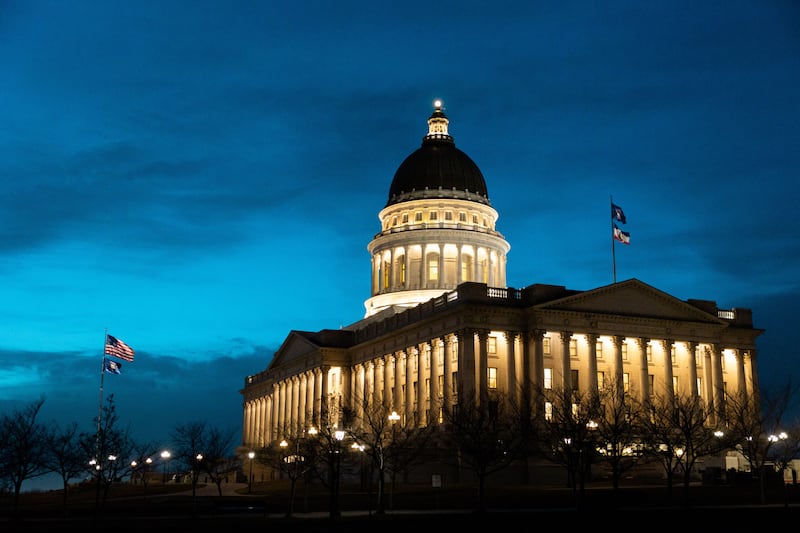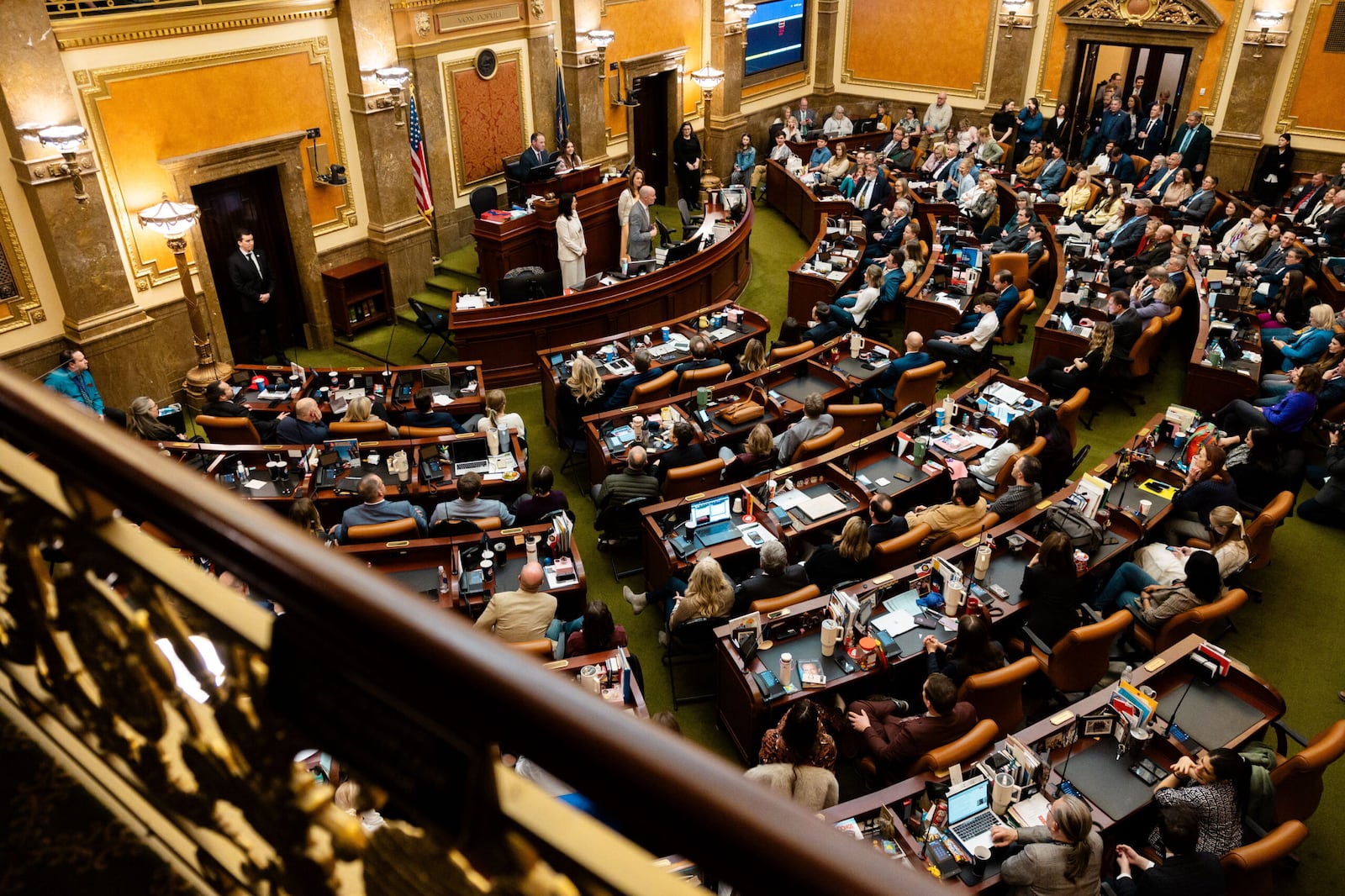This story appears in the April issue of Utah Business. Subscribe here.
The 2024 legislative session ended on March 1 with the passing of 591 bills (a new record) and a budget of $29.4 billion, with state revenues starting to level off. Here’s a look at some of the bills impacting Utah businesses this year.
Workforce development
HB346 – Talent Ready Utah Program Amendments by Rep. Jefferson Moss and Sen. Ann Millner expands the Talent Ready Utah program by including colleges and universities as “cooperating employers” that can provide work experience for an unpaid intern. Talent Ready Utah began in 2015 after Boeing approached the state to create a workforce development pipeline to fill high-demand jobs. It has been expanded a couple of times since its inception.
A related bill, SB122 – Youth Apprenticeship Governance Structure Amendments, creates a youth apprenticeship governance study staffed by the Talent Ready Utah program to look at ways to increase youth apprenticeship opportunities and leverage career and technical education, concurrent enrollment and stackable credentials.
A third bill, SB192 – Higher Education Amendments, makes a number of changes, including the creation of “talent advisory councils” at institutions of higher education to create expanded multidisciplinary programs that target the specific needs of Utah’s business community.
Worker protections
HB55 – Employment Confidentiality Amendments by Rep. Kera Birkeland and Sen. Todd Weiler voids and makes unenforceable any nondisclosure agreements and nondisparagement agreements when sexual assault and sexual harassment are present in the workplace. The new law also voids a requirement to not disclose any settlement reached because of sexual assault and prohibits retaliation by employers.
SB149 – Artificial Intelligence Amendments by Sen. Kirk Cullimore and Rep. Jefferson Moss creates an Office of Artificial Intelligence Policy to administer a state AI program, as well as a learning lab to assess rapidly evolving technologies, potential risks and policy implications. It also sets parameters for anyone in a regulated profession under the Division of Professional Licensing (DOPL) to “clearly and conspicuously” disclose when generative AI is being used when interacting with a person.

Licensure changes
In the summer of 2022, the Utah Office of Professional Licensure Review began reviewing every professional license type in the state and looking for ways to decrease barriers to entry while protecting public safety. Here’s a look at some of the licensure changes that were passed:
Behavioral health
According to a January report from the Utah Department of Commerce, as many as 515,000 Utahns who need behavioral health services are unable to access them. During a January press conference, Utah Department of Commerce Executive Director Margaret Busse called the disparity a “chasm” that is contributing to and worsening Utah’s mental health crisis.
SB26 – Behavioral Health Licensing Amendments, by Sen. Curt Bramble and Rep. Cory Maloy, is a substantive bill addressing the findings of the report. The bill aims to fill gaps in career ladders by offering new licenses for behavioral health technicians (a one-year training and certification program) and behavioral health coaches (bachelor’s level), as well as allowing psychologists to prescribe certain medications. Second, the new law makes it easier for trained professionals in other states to be licensed in Utah by allowing exam alternatives to master’s-level therapists and adding a new master addiction counselor license. Third, the law adds flexibility to continuing education requirements. Fourth, it streamlines the governance structure by removing occupation-specific boards and creating one multi-profession behavioral health board. It removes the vocational rehabilitation counselor’s license.
The bill also focuses on increasing client safety by increasing the number of supervised hours required in direct patient care, requiring supervisors to go through specific training to improve the supervisory process and requiring background checks for therapists.
International licenses
HB58 – Licensing Amendments, also by Rep. Maloy and Sen. Bramble, make it easier for people who have been licensed in another country to become licensed in Utah. The new law broadens the DOPL’s discretion to accept substantially similar education or experience in satisfaction of standard licensing requirements, permits the DOPL to issue a limited supervised training permit to an applicant seeking licensure by endorsement under certain circumstances and establishes a licensure-by-endorsement process.
Taxes
The Utah legislature reduced the income tax rate from 4.65 percent to 4.55 percent via SB69 – Income Tax Amendments. The bill was run by Sen. Chris Wilson and Rep. Kay Christofferson with multiple co-sponsors. This marks the fourth year in a row that the Utah legislature has cut taxes.
The child tax credit for families with young children was expanded to include children from age one up to age four. This nonrefundable tax credit of $1,000 per child begins to phase out as family incomes rise.
Two big bills that could raise taxes also passed the legislature: HB562 – Utah Fairpark Area Investment and Restoration District, or the “Major League Baseball” (MLB) bill, and SB272 – Capital City Revitalization Zone, or the “National Hockey League” bill.
The MLB bill sets aside funds for a state-owned stadium on the west side of I-15. Funding for the stadium would come from increasing car rental taxes by 1.5 percent but is also contingent upon Utah actually getting a stadium. It also allows the newly created Fairpark District to levy a municipal energy sales and use tax, a telecommunications license tax, and an “accommodations” tax, as long as the accommodations are within the district. Supporters say this bill is not just about a stadium; it’s about investment in Salt Lake City’s west side. This bill had broad support.
The NHL bill establishes a “reinvestment” district in the nine-block radius surrounding the Delta Center. This new district and potential stadium will be funded by increasing the sales tax by 0.5 percent in Salt Lake City, which would push the sales tax rate to 8.25 percent. The final decision to raise taxes will be made by municipal leaders. Salt Lake City Mayor Erin Mendenhall told a legislative committee this new law will be “transformative.”
Other bills of interest
HB75 broadens parental leave for state employees and now includes foster parents. The bill also allows for parental leave to be used for postpartum recovery at any time after 20 weeks of gestation.
HB192 instructs local education agencies to come up with paid parental leave policies that cover biological and adoptive parents and that are not more restrictive than the parental leave available to state employees.


